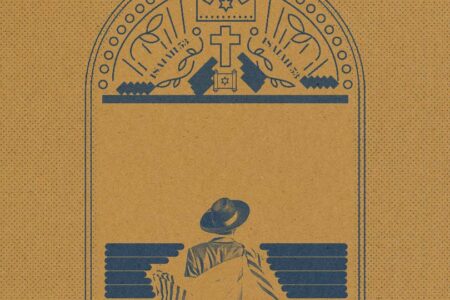Christmas Is…
Most people don’t go to Isaiah 53 to learn the meaning of Christmas. But they could!
Christmas is a busy time of year. Everyone’s schedule seems to be full of holiday events. Getting together with family and friends. Singing Christmas carols. Buying presents. Preparing special dishes using favorite recipes passed down through generations. And, of course, decorating.
Though all of these activities are wonderful parts of our Christmas celebrations, they are not what Christmas is all about. Christmas is “Behold, the virgin shall conceive and bear a Son, and shall call His name Immanuel” (Isa. 7:14). Christmas is “For unto us a Child is born, unto us a Son is given” (9:6). Christmas is “For unto you is born this day in the city of David a Saviour, which is Christ the Lord” (Lk. 2:11, KJV).
Christmas is about Jesus and how the eternal God came to Earth as the Messiah of Israel to “save His people from their sins” (Mt. 1:21).
‘He Was Oppressed’
Some might think the Old Testament an odd place to go to learn about Jesus. But God provided copious details throughout the Hebrew Scriptures about His birth, life, death, resurrection, and purpose so His people would recognize Him when He came.
He was the Suffering Servant who would be “oppressed and . . . afflicted, yet He opened not His mouth; He was led as a lamb to the slaughter, and as a sheep before its shearers is silent, so He opened not His mouth” (Isa. 53:7).
This oppression began almost immediately after His public ministry started. The Jewish religious leaders rejected Jesus’ Messianic claims. Finally, one of His own disciples, Judas Iscariot, betrayed Him.
He endured trials before Herod, Pontius Pilate, the Jewish high priests, and the religious leaders. He was beaten, spat on, and stripped of His clothes. To mock Him, Roman soldiers twisted sharp thorns into a crown and forced it down on His head. Then they struck Him with their hands and laughed at Him as they proclaimed, “Hail, King of the Jews!” (Jn. 19:2–3).
Though Jesus easily could have extricated Himself, He did nothing. He endured the mocking and torture, even though He had said earlier, “Do you think that I cannot now pray to My Father, and He will provide Me with more than twelve legions of angels? How then could the Scriptures be fulfilled, that it must happen thus?” (Mt. 26:53–54).
He patiently endured everything because He knew before the foundation of the world that to redeem us, He had to be “wounded for our transgressions” and “bruised for our iniquities” (Isa. 53:5). He was fulfilling His purpose, as foretold in the Hebrew Scriptures.
Though for the most part He was silent, He admitted at His trial that He was the Son of God:
As soon as it was day, the elders of the people, both chief priests and scribes, came together and led Him into their council, saying, “If You are the Christ [Messiah], tell us.” But He said to them, “If I tell you, you will by no means believe. And if I also ask you, you will by no means answer Me or let Me go. Hereafter the Son of Man will sit on the right hand of the power of God.” Then they all said, “Are You then the Son of God?” So He said to them, “You rightly say that I am” (Lk. 22:66–70).
‘He Was Cut Off’
Isaiah prophesied the Messiah would be “taken from prison and from judgment, and who will declare His generation? For He was cut off from the land of the living; for the transgressions of My people He was stricken” (Isa. 53:8). Jesus was crucified between two thieves, even though He was declared innocent of wrongdoing (Lk. 23:4).
For centuries the Jewish people have been falsely blamed for Jesus’ death. They have been called “Christ killers” and endured unimaginable torture and persecution as enemies of the cross. However, Jesus was in complete control of the entire situation. He Himself explained, “No one takes it [My life] from Me, but I lay it down of Myself. I have power to lay it down, and I have power to take it again. This command I have received from My Father” (Jn. 10:18). On the cross, He said, “‘Father, into Your hands I commit My spirit.’ Having said this He breathed His last” (Lk. 23:46).
Furthermore, the Messiah had to die. His death was prophesied, and Scripture had to be fulfilled.
Jesus was born for a specific purpose: to deal with sin—Jewish and Gentile. He came to become the final, atoning sacrifice for everyone. The Jewish people are no more to blame for His death than the Gentiles, “for all have sinned and fall short of the glory of God” (Rom. 3:23). That is why Jesus said, “And I, if I am lifted up from the earth, will draw all peoples to Myself” (Jn. 12:32, emphasis added).
What Israel’s Messiah accomplished would be so monumental that He also would become the Savior of the world:
It is too small a thing that You should be My Servant to raise up the tribes of Jacob, and to restore the preserved ones of Israel; I will also give You as a light to the Gentiles, that You should be My salvation to the ends of the earth (Isa. 49:6).
‘He Had Done No Violence’
Isaiah foretold that, “because He had done no violence, nor was any deceit in His mouth” (53:9), this righteous Servant would receive a proper burial. He would not be thrown into an unmarked, unattended potter’s field.
This prophecy, too, was fulfilled. After the Roman soldiers confirmed Jesus was dead, Joseph of Arimathea and Nicodemus, a Jewish leader, asked for His body. They laid it in Joseph’s new, never-used tomb (Jn. 19:38–42). As Isaiah prophesied, “They made His grave with the wicked—but with the rich at His death” (Isa. 53:9).
Jesus ministered for three years before He was crucified. His cousin John the Baptist, of priestly lineage, identified Him as “the Lamb of God who takes away the sin of the world” (Jn. 1:29). Just as the blood of the Passover lamb delivered the Jewish people from physical death in Egypt when God sent the 10th plague, Jesus’ blood delivers both Jews and Gentiles from spiritual death, which is eternal separation from God.
Passover lambs were observed for three days to ensure they were perfect, without spot or blemish. Jesus was watched for three years; and then Pilate decreed Him perfect, not deserving of death—just as Isaiah foretold.
We were not redeemed “with corruptible things, like silver or gold . . . but with the precious blood of Christ, as of a lamb without blemish and without spot. He indeed was foreordained before the foundation of the world” (1 Pet. 1:18–20).
That’s what Christmas is all about—the birth of the Suffering Servant, the Messiah of Israel, “the Lamb of God who takes away the sin of the world” (Jn. 1:29). Jesus is God’s gift of love to all mankind, which makes Christmas all about God’s amazing love (3:16).









Tengo entendido que Jesús no nació en esta temporada llamada Navidad, entonces en que tiempo nació en que mes según el calendario hebreo?
I understand that Jesus was not born in this season called Christmas, so at what time was he born in what month according to the Hebrew calendar?
That is an excellent question, one that the Bible really does not answer. Most theologians speculate that He was born in the spring, possibly near Passover. We do know that Passover lambs were raised in Bethlehem, which was and still is very close to Jerusalem where the Passover lambs were prepared for the Seder which was one of the three required Jewish feasts that Jewish men had to attend, according to God’s Law. The three required Feasts were: Passover, Pentecost, and Tabernacles.
Thank u for this reading I Love Jesus, I’m Born Again Praise God the Father,and The Holy Spirit.
In one of Andy’s lessons, he shared that while attending Dallas Theological Seminary a professor asked the class to state the most important verse in the Bible. Andy shared that in his mind he was thinking John 3:16. His interest perked when the professor had the class examine Genesis 15:18. The professor made it clear that if God cannot or does not keep this covenant, then the true church can have no assurance of salvation.
The truth is: if we are truly born again, our salvation in Christ is secure in Jesus Christ, and Israel’s claim to her land is secure as well. Therefore, Replacement Theology is unBiblical.
Amen!
“For centuries the Jewish people have been falsely blamed for Jesus’ death. They have been called “Christ killers”…
I not sure “falsely blamed” is entirely correct. Consider the words of Peter in Acts 2:23 where we see the divine side (determinant counsel and foreknowledge of God) and human responsibility (ye, Jews, have taken by wicked hands) and crucified.
Of course the Gentile are also responsible too.
Just a technical point. I do appreciate your comments and trust the lord by the Holy Spirit will use it to His glory in salvation. Merry Christmas to you and your wife, whose conversion I enjoyed reading in her book.
To blame the Jews is ludicrous. Are you not familiar with John 1:29 and 10:17, 18? “The next day he saw Jesus coming to him and said, “Behold, the Lamb of God who takes away the sin of the world!” ““For this reason the Father loves Me, because I lay down My life so that I may take it again. 18“No one has taken it away from Me, but I lay it down on My own initiative. I have authority to lay it down, and I have authority to take it up again. This commandment I received from My Father.” As much as anyone, you and me are just as responsible for shedding the blood of Messiah and don’t presume to wriggle out of the responsibility.
Hello
Though I doubt they would remember me, I know both Tom & Lorna Simcox from my fellowship at Bible Baptist Church (now Graceway) in Hamilton NJ, where Dr. Richard Emmons was the pastor for many years. All are excellent teachers. I also sat under Dr. Emmons while attending Philadelphia College of BIBLE. All three are excellent role models for us all.
Great article. Praise the Lamb of God – Messiah!
Love Israel My Glory